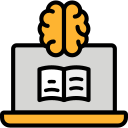From Static Volumes to Living Knowledge
The shift from printed tomes to hyperlinked, searchable entries unlocked faster learning and broader access. Continuous updates, citation trails, and community review turned encyclopedias into living knowledge systems that adapt swiftly to breakthroughs, corrections, and new perspectives.
From Static Volumes to Living Knowledge
Editors, subject experts, and attentive readers now work together, flagging sources, improving clarity, and correcting errors. This distributed model encourages transparency, elevates standards, and accelerates refinement—an advancement that makes today’s digital encyclopedias more responsive and trustworthy.


